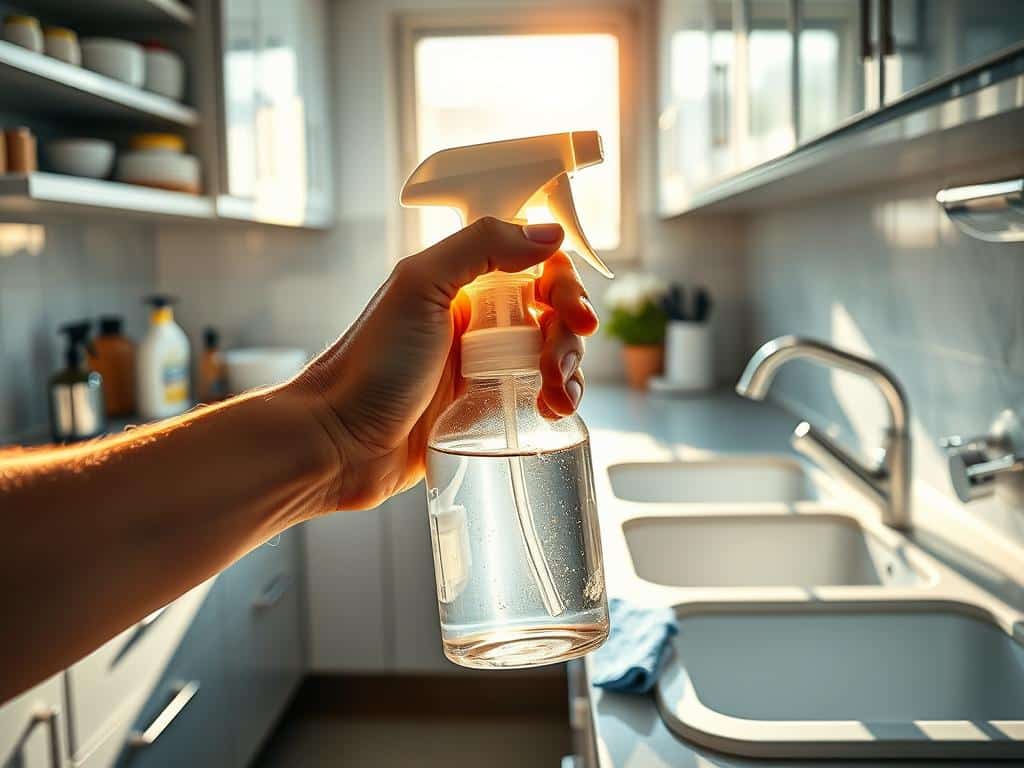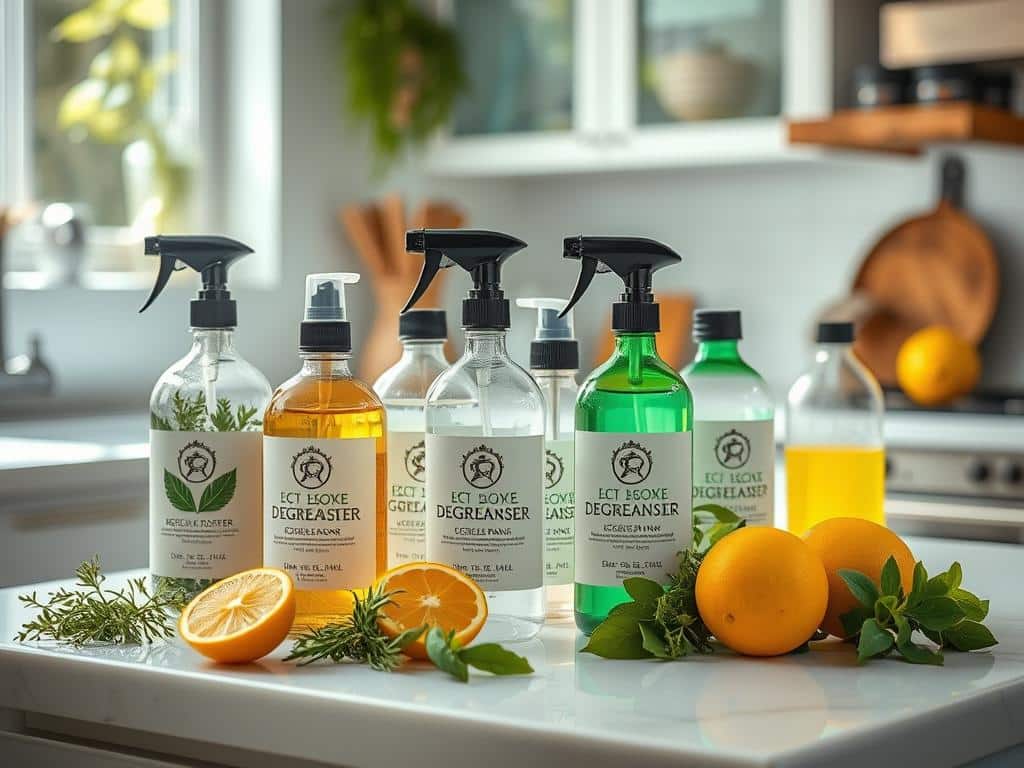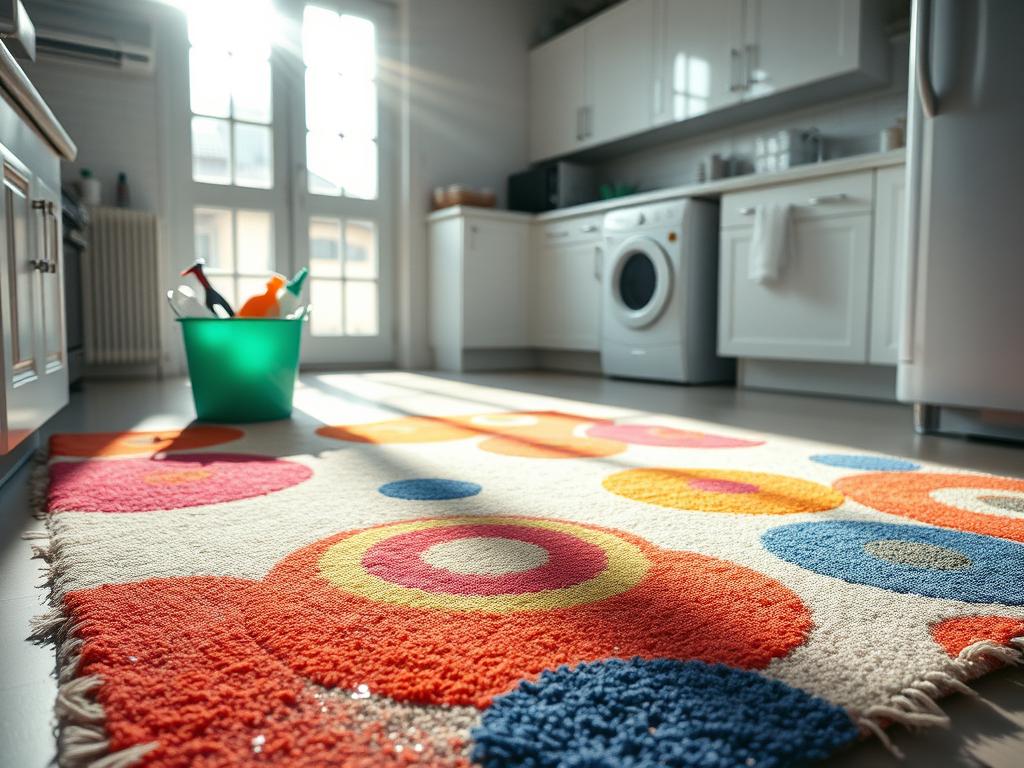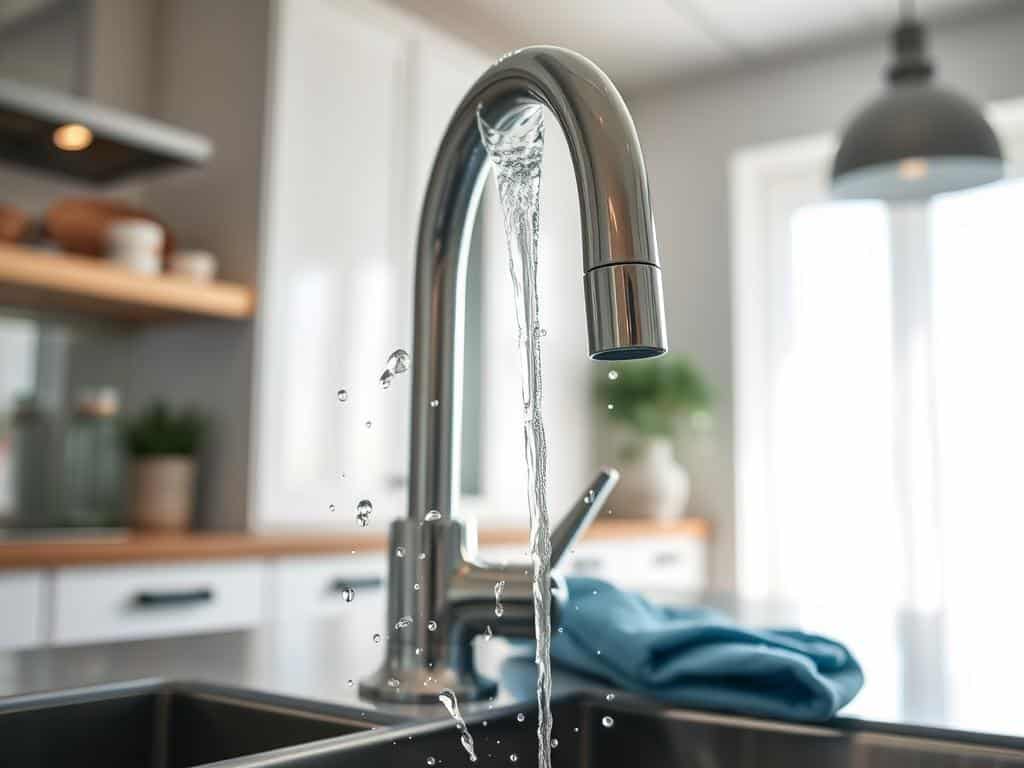
Grease accumulation in kitchens is an unavoidable consequence of cooking with butter, olive oil, and other cooking sprays. Consistent cleaning is essential to maintain a hygienic space and inspire culinary creativity in a tidy environment. Utilizing simple ingredients that are often already in your home can be incredibly effective for kitchen grease removal.
For immediate spills, products like flour can absorb grease before it sets. A mixture of baking soda and water works wonders on hardened grease, while dish soap proves effective on fabrics contaminated with grease stains.
Another formidable grease cleaning solution involves vinegar; applying it to a hot surface can effortlessly break down stubborn grease deposits. For dried and encrusted grease, a blend of rubbing alcohol, dish soap, kosher salt, and baking soda can be the perfect remedy.
Timely and frequent cleaning not only prevents stubborn stains but also ensures a cleaner and healthier cooking environment. Below, we delve into understanding the challenges of kitchen grease and provide you with practical kitchen cleaning tips.
Understanding the Challenge of Kitchen Grease
Dealing with kitchen grease can be quite a hassle, especially when it comes to baked-on layers. The grease removal difficulty stems from the fact that grease molecules do not adhere to water molecules. This makes water alone ineffective in removing stubborn grease. Regular kitchen maintenance plays a crucial role in managing the buildup of grease, making future cleanings far more manageable.
Why Grease is Tough to Remove
One of the primary reasons for the grease removal difficulty is the nature of its molecules. Grease molecules don’t bind well with water, which is why using water alone is generally ineffective. Alkaline cleaners, with their high pH levels ranging from eight to 14, are particularly effective in breaking down fats, oils, and proteins.
Why Water Alone Isn’t Enough
When attempting to clean greasy surfaces, water and grease don’t mix. This inefficiency of water arises because it lacks the properties needed to dissolve grease molecules. Using appropriate cleaning products is essential for effective grease removal. All-purpose cleaners, often pH neutral, are excellent for routine cleaning, but for heavier grease, stronger alkaline solutions are necessary.
The Importance of Regular Cleaning
Implementing a routine of regular kitchen maintenance is vital. Not only does it help in preventing the buildup of grease, but it also ensures that any accumulated grime can be tackled more easily. Methods like regular boiling water treatments down the drain can help maintain clean and hygienic conditions. Moreover, ensuring surfaces are wiped down and crumbs removed can save significant effort in the long run.
By understanding the unique challenges posed by kitchen grease, and incorporating regular maintenance practices, you can achieve a cleaner, more efficient kitchen environment without the overwhelming stress typically associated with heavy grease removal difficulty.
Effective Household Solutions for Removing Kitchen Grease
Tackling kitchen grease can often feel like an uphill battle, but with the right tools and techniques, you can achieve a spotless kitchen. Here are some effective household solutions that utilize natural grease removers for a more eco-friendly approach to cleaning. These homemade degreasers not only get the job done but also ensure the safety of your surfaces and the environment.
Baking Soda and Water Mixture
Baking soda is a fantastic natural grease remover thanks to its alkaline properties. When combined with water, it forms a mild abrasive paste that effectively dissolves grease. This mixture works wonders on hard surfaces and cookware, ensuring a thorough clean without any damage.
To create this mixture, simply combine one cup of baking soda with three cups of water. Apply it to the greasy area, scrub gently with a sponge, and rinse with warm water.
Using Dish Soap
Dish soap is specifically formulated to break down grease and fats, making it an excellent cleaner for greasy kitchen fabrics and surfaces. By attaching to grease molecules, dish soap allows them to be easily washed away, leaving your surfaces spotless.
A common homemade degreaser involves mixing 1 cup of vinegar, 1 cup of baking soda, and 3 cups of water with ½ cup of dish soap. This mixture can be applied directly to greasy areas and wiped clean for an effective solution.
The Power of Vinegar
Vinegar is an incredibly versatile household item, thanks to its acidic properties. It can soften and help remove caked-on grease, especially when the surface is warm. Vinegar for grease is particularly effective when diluted with water to avoid damaging surfaces like tiles.
According to Topps Tiles, a mixture of at least 50% vinegar and water is recommended for cleaning kitchen tiles. Sabrina Fierman from New York’s Little Elves suggests using a mixture of 1 cup vinegar, 3 cups water, and a cup of baking soda for a potent homemade degreaser. This combination tackles even the toughest grease buildups with ease.
In summary, utilizing natural grease removers such as baking soda, dish soap, and vinegar can effectively clean kitchen grease without harming your surfaces. These homemade degreasers are easy to make, use, and safe, keeping your kitchen clean and environmentally friendly.
Non-Harmful Commercial Degreasers
Maintaining cleanliness without compromising safety is paramount in any kitchen. Non-harmful commercial degreasers provide an effective solution for heavy-duty grease removal while ensuring the well-being of users and the environment.
All-Purpose Degreasers
All-purpose degreasers like Krud Kutter offer versatility, making them suitable for various cleaning tasks. These eco-friendly degreasers work effectively on different surfaces and fabrics without causing damage. ECOS PRO, known for its mild yet effective formulation, is perfect for daily use and is U.S. EPA Safer Choice certified.
Degreasers for Specific Surfaces
Using targeted surface cleaners for specific materials ensures both efficacy and surface safety. For wood cabinets, a degreaser formulated specifically for wood can effectively remove grease without damaging the material. Stainless steel appliances benefit from degreasers like Simple Green Crystal, which can be diluted accordingly (up to 30:1 for light cleaning) for optimal results. Blue Bear Emerge is a trusted heavy-duty degreaser, which is also suitable for the chemically sensitive.

When to Use Heavy-Duty Products
Heavy-duty grease removal is often necessary in cases of severe buildup. Products like Zep Heavy-Duty Foaming Citrus Degrease provide powerful cleaning, efficiently tackling stubborn grease. Such products are ideal for commercial kitchens, where accumulated grease on appliances can increase operational costs and pose health hazards. High-traction degreasers, such as those offered by Sunrise Industrial Cleaners, minimize slip-and-fall risks, further ensuring kitchen safety. By using residue-free degreasers, surfaces stay clean longer, reducing the frequency of cleaning sessions, which in turn saves money and effort.
For more information on selecting the right degreaser for your needs, check out this comprehensive guide on eco-friendly degreasers.
The Best Methods for Removing Kitchen Grease from Different Surfaces
Kitchen grease can be a persistent challenge to tackle, but with the right methods and products, you can keep your kitchen spotless. From cleaning greasy countertops to maintaining shiny stainless steel appliances, each surface requires a unique approach.
Countertops and Stovetops
Cleaning greasy countertops starts with choosing the right products. Clorox Scentiva Multi-Surface Cleaner is an excellent option for various materials such as stainless steel, sealed wood, and synthetic marble. For stovetops, the Zep Heavy-Duty Citrus Degreaser is particularly effective. Simply apply, let it sit for about 10 minutes, and then wipe away the grease for a clean finish.
Cabinets and Ranges
Degreasing kitchen cabinets can be more demanding, especially if the grease has accumulated over time. A product like Krud Kutter can help cut through tough grime without damaging delicate wood surfaces. For everyday maintenance, you can use two tablespoons of dish soap mixed with a couple of pints of hot water to wipe down your cabinets.
Stainless Steel Appliances
Stainless steel care requires a gentle touch to avoid scratches and streaks. Using a product like Weiman Stainless Steel Cleaner and Polish Trigger can help remove excess oils and leave a polished finish. Always use a soft cloth for wiping down the surface to avoid any potential damage. For more detailed guidance, you can read this expert guide.
Sink and Dishware
Sinks and dishware are often overlooked but can accumulate a significant amount of grease. A simple solution of baking soda and hot water works wonders. Mix one cup of baking soda with warm water and use it to scrub your sink. Rinse thoroughly with clean water to ensure no residue remains. For dishware, a similar mixture followed by a final rinse can efficiently remove grease.
Maintaining a clean kitchen involves regular cleaning and the right choice of products. Always test a small area first, especially with wooden or delicate surfaces, to ensure the cleaner won’t cause damage.
Tips and Tricks for Maintaining a Grease-Free Kitchen
Maintaining a grease-free kitchen is essential for both hygiene and safety. Regular attention to daily kitchen upkeep and adopting weekly deep-cleaning kitchen routines can significantly reduce the risk of grease accumulation. Here are some practical tips and tricks to help you keep your kitchen spotless and welcoming.
Daily Cleaning Habits
Developing daily cleaning habits is vital for minimizing grease buildup. Wipe down surfaces immediately after spills and splatters to prevent them from hardening. Use proper ventilation, such as range hoods, while cooking to disperse airborne grease particles. Opt for cooking methods with less fat and lower temperatures to reduce grease splattering.
Weekly Deep Cleaning Techniques
Incorporate deep-cleaning kitchen routines once a week to tackle areas prone to grease buildup, like stovetops, oven surfaces, and under cabinets. Use a combination of baking soda paste for stubborn grease and equal parts water and vinegar for tough residues.
Preventative Measures
Taking proactive steps can significantly reduce grease accumulation. Implement cooking practices that minimize splattering, such as using splatter screens and lids. Additionally, consider using products containing beeswax or protective elements to shield cabinet surfaces from grease. Regularly clean hood filters to ensure effective ventilation.
Using Natural Ingredients
Natural degreasing methods are not only eco-friendly but also safe for daily use. Vinegar and baking soda are excellent options for maintaining a grease-free kitchen. Use vinegar for quick daily touch-ups and baking soda paste for more persistent grease. Citrus oil degreasers can also be used for tough grease spots—just spray and wipe clean.
Conclusion
Tackling the challenge of kitchen grease head-on may initially seem daunting, but with the right strategies, it’s entirely manageable. By combining effective cleaning methods, appropriate products, and consistent preventative measures, you’ll be mastering grease removal in no time. Whether you opt for household solutions like baking soda and vinegar or select specialized commercial degreasers like Krud Kutter and Goo Gone, maintaining a grease-free kitchen ensures longevity and cleanliness for your surfaces.
One of the key components to maintaining a clean kitchen is regular cleaning. Daily habits such as wiping down surfaces with a mild dish soap and warm water, and using tools like splatter screens during cooking can significantly minimize grease accumulation. For more intensive cleaning, specific degreasers are needed for areas like kitchen cabinets and stainless steel appliances. Products like Easy Off can help tackle those stubborn grease spots that often result from leftover food residue and poor ventilation.
This ultimate degreasing guide emphasizes that understanding how to address grease effectively impacts both the appearance and hygiene of your kitchen. Adequate ventilation during cooking, prompt clean-up of spills, and the use of non-damaging cleaning products safeguard your kitchen while making the task of grease removal a routine part of your housekeeping. For a comprehensive walkthrough on removing sticky grease from various kitchen surfaces, explore more insights here. Implement these tips to enjoy a pristine, inviting cooking environment every day.



